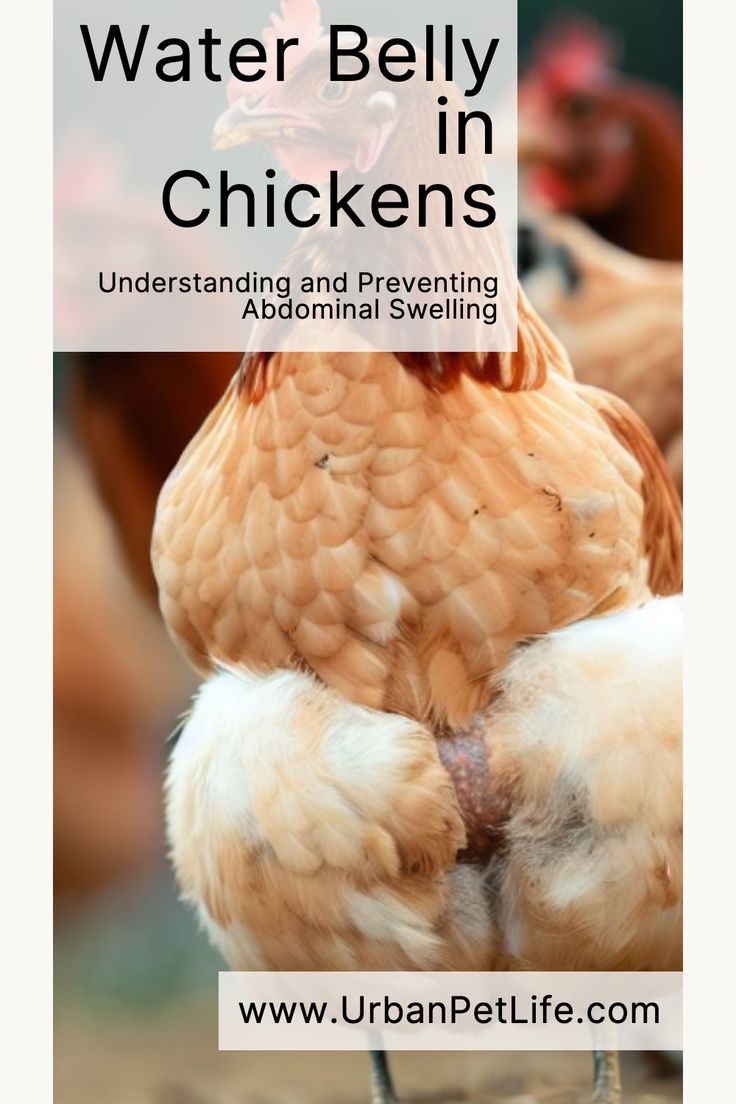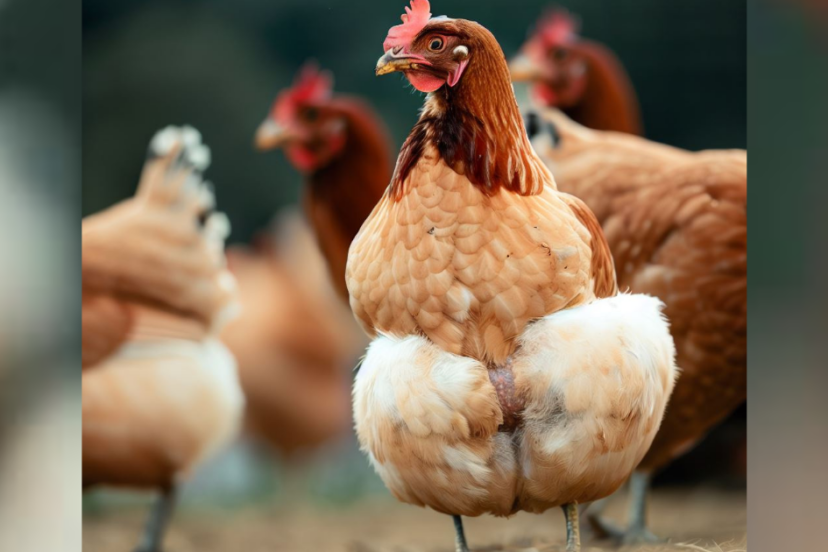I understand the importance of maintaining the health and well-being of our beloved flock. One common condition that can affect chickens is water belly, also known as abdominal effusion.
In this section, we will uncover the causes, symptoms, and preventive measures for this condition, providing valuable insights and suggestions to keep our chickens healthy and happy.
What is Water Belly in Chickens?
Water belly, or abdominal effusion (
Ascites syndrome), refers to the accumulation of fluid in the abdominal cavity of chickens. This condition can occur due to various underlying factors and may lead to abdominal swelling and discomfort. It is important to understand the causes and recognize the symptoms to take appropriate preventive measures.
Common Causes of Water Belly
Water belly in chickens can have several potential causes, including:
- Heart or liver disease: Certain cardiac or liver conditions can lead to fluid retention in the abdomen.
- Kidney dysfunction: Impaired kidney function can disrupt fluid balance and result in fluid accumulation.
- Infection or inflammation: Infections or inflammations in the abdominal organs can trigger fluid buildup.
- Nutritional imbalances: Poor diet or nutritional deficiencies can contribute to water belly.
Recognizing the Symptoms
Identifying the symptoms of water belly in chickens is crucial for early detection and intervention.
Common signs may include:
- Abdominal swelling: Noticeable enlargement of the abdominal area.
- Difficulty breathing: Labored breathing or respiratory distress due to pressure from the swollen abdomen.
- Reduced activity and appetite: Chickens may exhibit decreased energy levels and a decline in appetite.
- Discomfort and lethargy: Chickens may appear uncomfortable, lethargic, or exhibit signs of pain.
Preventing Water Belly in Chickens
Prevention plays a crucial role in safeguarding our chickens’ health. Here are some essential steps to help prevent water belly:
Balanced Diet for Chickens
Providing a well-balanced diet is fundamental to overall chicken health. Ensure that your flock receives appropriate nutrition through a quality commercial feed formulated specifically for chickens. This feed should contain a proper balance of proteins, vitamins, minerals, and essential nutrients to support their overall well-being.
Providing Clean and Fresh Water
Hydration is key to maintaining optimal health in chickens. Ensure they have access to clean and fresh water at all times. Regularly clean water containers and change the water to prevent bacterial growth or contamination. Proper hydration helps maintain fluid balance and supports the overall health of chickens.
Ensuring Proper Ventilation and Cleanliness
Adequate
ventilation is vital for preventing respiratory issues and minimizing the risk of infections that can contribute to water belly. Here are some considerations:
- Adequate Ventilation in the Coop: Proper airflow in the chicken coop helps remove excess moisture and prevents the buildup of harmful gases. Ensure there are enough vents or windows to promote good air circulation.
- Regular Cleaning and Maintenance: Regularly clean the coop, removing soiled bedding and droppings. A clean and dry environment reduces the risk of infections and improves overall hygiene.
Seeking Veterinary Care and Diagnosis
If you suspect water belly in your chickens or notice any concerning symptoms, it is crucial to seek professional veterinary care. A poultry veterinarian can provide an accurate diagnosis and recommend appropriate treatment options. Diagnostic tests such as physical examinations, blood work, and imaging may be necessary to determine the underlying cause of water belly.
Treatment options will depend on the specific diagnosis and may include medication, dietary adjustments, or supportive care to alleviate symptoms and improve the chicken’s condition.
Conclusion
Water belly, or abdominal effusion, can be a concerning condition for chicken owners. However, with the right knowledge and preventive measures, we can minimize the risk and keep our feathered friends healthy and happy. By focusing on providing a balanced diet, clean water, proper ventilation, cleanliness, and seeking veterinary care when needed, we can safeguard our chickens’ well-being and prevent abdominal swelling.
Remember to pay attention to any changes in your chickens’ behavior or physical appearance and consult a veterinarian if you have concerns. By taking proactive steps and ensuring a supportive environment, we can promote the best possible health for our beloved flock.
FAQs (Frequently Asked Questions)
1. Can water belly be contagious among chickens?
Water belly itself is not contagious. However, certain underlying causes, such as infections, may be contagious. Consult a veterinarian to determine the cause and take appropriate precautions.
2. Can water belly be fatal for chickens?
In severe cases, water belly can have life-threatening consequences. Prompt veterinary intervention is crucial to maximize the chances of successful treatment and recovery.
3. Is water belly preventable with proper management?
While not all cases of water belly can be prevented, maintaining proper nutrition, hygiene, and seeking veterinary care can significantly reduce the risk.
4. Are there any natural remedies for water belly in chickens?
Natural remedies may help in some cases, but it is important to consult with a veterinarian for an accurate diagnosis and appropriate treatment.
5. Can water belly recur after treatment?
Recurrence of water belly can depend on the underlying cause. It is essential to address the root cause and follow the veterinarian’s advice for long-term management and prevention.

*We may earn a commission from purchases made through our links, at no cost to you. This does not affect our product recommendations. Please see our disclosure to learn more.





